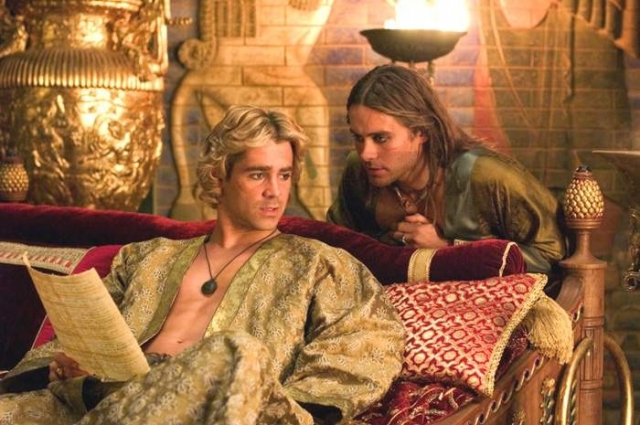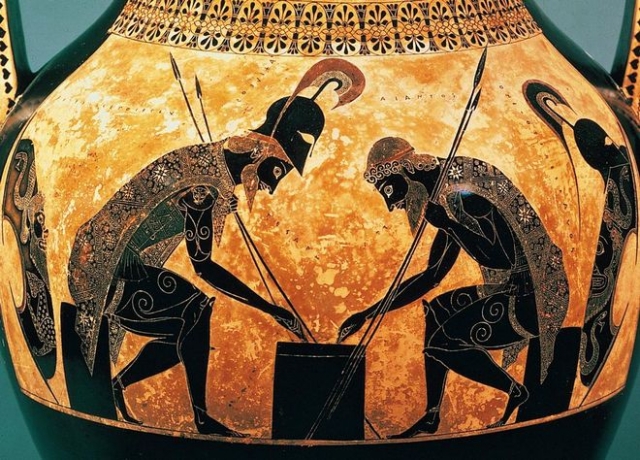Photos www.iefimerida.gr
Archaeologist Katerina Peristeri, who found the Amphipolis tomb, claims that this is the tomb of Hephaestion, commissioned by none other than Alexander the Great.
Was Alexander the Great homosexual? Was Hephaestion anything more than his closest friend?
The story of two antique heroes aroused the interest of the ancient historians and even found a place in academic history books.

Roman historian Quintus Curtius Rufus wrote in the 1st century AD in his ''History Of Alexander The Great'' that Alexander so much despised pleasures with women that his mother Olympias was afraid her son might remain childless.
This is corroborated by the ancient Greek historian Theophrastus, who said that Philip and Olympias feared that Alexander was too effeminate and sent him the Thessalian hetaera Calyxenia, known for her beauty, to seduce their son.
Aelian writes of Alexander's visit to Troy where he garlanded the tomb of Achilles and Hephaestion that of Patroclus, who just like them were lovers. Then they worshiped the gods and asked to remain true to one another like Achilles and Patroclus.

According to the Greek scholar from the 2nd century AD, Athenaeus of Naucratis, Alexander loved boys so much that he would lose his mind.
In his ''Parallel Lives'', Plutarch recounts that Alexander's grief upon Hephaestion's death exceeded all reasonable bounds. He ordered the doctor in whose care Hephaestion was to be crucified, and all horses to have their tails and manes cut off as a sign of mourning. He also demanded the destruction of the walls of surrounding towns. Straight after that, for no obvious reason, he invaded the land of the Kassites and slew them all.

Lucius Flavius Arrian, considered the most reliable source for the life of the Macedonian king, also described Alexander's sorrow: "… some (historians) seem to me to have thought that whatever Alexander said or did to show his excessive grief for the man who was the dearest to him in the world, redounds to his own honour; whereas others seem to have thought that it rather tended to his disgrace, as being conduct unbecoming to any king and especially to Alexander. Some say that he lay prostrate on his companion's body for the greater part of that day, bewailing him and refusing to depart from him, until he was forcibly carried away by his Companions. Others that he lay upon the body the whole day and night. (...) That Alexander should have cut off his hair in honour of the dead man, I do not think improbable, both for other reasons and especially from a desire to imitate Achilles, whom from his boyhood he had an ambition to rival. (...) All, however, agree to the following: three days after the death of Hephaestion, Alexander did not put any bite in his mouth and completely ignored his appearance (…) but lay on the ground either bewailing or silently mourning; that he also ordered a funeral pyre to be prepared for him in Babylon at the expense of 10,000 talents; (…) that a decree was published throughout all the barbarian territory for the observance of a public mourning. He also resolved to celebrate a gymnastic and musical contest, much more magnificent than any of the preceding, both in the multitude of competitors and in the amount of money expended upon it. For he provided 3,000 competitors in all; and it is said that these men a short time after also competed in the games held at Alexander's own funeral."